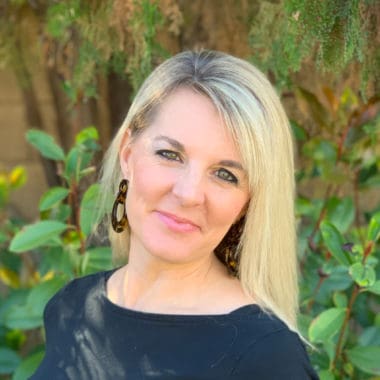This Present Paradise
A Series of Reflections on St. Elizabeth of the Trinity
(Start with part 1 here.)
Even as a little girl, Elizabeth had a Eucharistic heart.
A transformation had taken place after her First Communion and a deeper life had begun to grow, spilling out in her eyes, in her prayer, in her life. It really was a union of Jesus with His Elizabeth. They were growing closer and closer, and she was recognizing His voice in her depths. It was immediately after receiving the Eucharist, while He was still physically present within her, that she heard first the call to become His as a consecrated religious, and then, to enter Carmel.
Already she was on the way to incarnating the words of St. Teresa Benedicta of the Cross (Edith Stein): “In order to have Divine Love as its inner form, a woman’s life must be a Eucharistic life. Only in daily, confidential relationship with the Lord in the tabernacle can one forget self, become free of all wishes and pretensions, and have a heart open to the needs and wants of others. Whoever lets herself be purified by the sanctifying power coming from the sacrifice of the altar, offering herself to the Lord in this sacrifice, whoever receives the Lord in her soul’s innermost depth in Holy Communion cannot but be drawn ever more deeply and powerfully into the divine life, incorporated into the Mystical Body of Christ, her heart converted to the likeness of the divine heart.”
A woman’s life must be a Eucharistic life. – St. Teresa Benedicta of the Cross
What does that mean, “having Divine Love as its inner form”? Well, as a philosopher, Teresa Benedicta was referring to the “inner form” as that which is the force behind all the other virtues, which binds them, animates them, coordinates them, and makes them fruitful. It is that which is the director of the orchestra which is our soul. What do we want directing our soul if not Divine Love? And so, she says, our lives must be Eucharistic.
Elizabeth would have wholeheartedly agreed. She wrote, “It seems to me that nothing better expresses the love in God’s Heart than the Eucharist; it is union, consummation, He is us, we in Him, and isn’t that Heaven on Earth?” (L 165) She received Jesus in the Blessed Sacrament as often as possible. In the common practice at the time, she would not normally be able to receive every day. But she longed for Him, hungered for Him, desired Him. She was overjoyed when her priest allowed her to receive four times a week rather than three. And when her confessor allowed her Communion every day for the eight days of the Corpus Christi Octave in June of 1898, she savored the continuous encounter. Two years later, again she was able to receive for eight days in observance of the feast of Teresa of Avila. As it ended, she wrote, “O my God, you are sending me the greatest of sacrifices! Having received you every day, what is going to become of me without you? But, you have told me, you have no need of the Sacrament to come to me!”
You have no need of the Sacrament to come to me.
I wrote in another post the story of when this hit me with a force I’ll never forget:
One Sunday, I had hoped to get away for a time – not even an hour, just a little time – to the adoration chapel in a nearby parish. But it wasn’t meant to be. Little fires had to be put out, the many needs of six children simply had to be attended to, and soon the day was gone. Finally, that night, I knelt. Not in prayer. I knelt on the kitchen floor, head bent, cleaning up spilled Cheerios. And then, suddenly, this:
You couldn’t come to Me, so I have come to you.
The words penetrated my heart. He was there. He was there, with me, among my mess in the dark kitchen. He saw. He knew.
Image the surge in my heart when, years later, I came across these words in a letter Elizabeth wrote to her sister Guite who couldn’t make it to Mass for Holy Thursday, the day after her second baby was been born: “I’ve carried your soul with mine everywhere during this great week, especially during the night of Holy Thursday, and since you could not go to Him, I told Him to come to you.” (L 227)
Jesus knows our hearts and our efforts. He chooses ordinarily to come to us through the powerful means He has given—but He is unconfined by them. When the obligations and restrictions of our vocation and our God-given circumstances conflict with our desires, even our holy desires, it is simply another opportunity to be a little white flag in His wind. And that, really, is all He needs to see to sweep in and become our greatest desire.
He will come as He will. Make plans to meet Him whenever you can—but expect Him everywhere.
He will come as He will. Make plans to meet Him whenever you can—but expect Him everywhere.
The Church gives us a powerful practice whenever we cannot receive Communion physically: the Act of Spiritual Communion. This is the kind of communion Elizabeth practiced until it became as natural as breathing—Jesus in, self out. Jesus in, self out, Jesus in, self out.
Act of Spiritual Communion
My Jesus,
I believe that You
are present in the Most Holy Sacrament.
I love You above all things,
and I desire to receive You into my soul.
Since I cannot at this moment
receive You sacramentally,
come at least spiritually into my heart.
I embrace You as if You were already there and unite myself wholly to You.
Never permit me to be separated from You.
Amen.
(Read part 13 here.)
Image courtesy of Unsplash.




